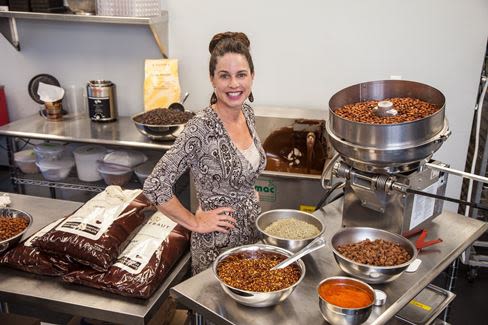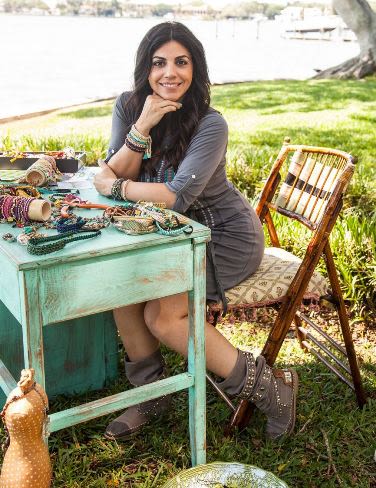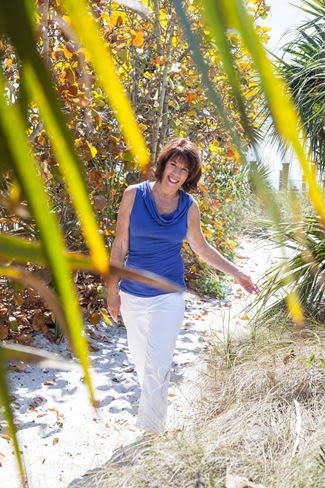Dream Jobs
How three women turned their passion into cash.
By Abby Weingarten
Photography by Jenny Acheson
Making your hobby your job is risky, but if you do it right, the rewards are more than monetary. Work becomes soul-satisfying and motivating, something everyone wants. Here’s how three women pulled it off.
KELLI KAMM
FOUNDER/OWNER, THE CHOCOLATE BARK COMPANY

In 1998, corporate attorney Kelli Kamm launched a chocolate and ice cream shop called Simply Chocolate. She later named the business Chocolate, Nuts & More before rebranding again in 2008 to the current Chocolate Bark Company. After a decade of fine-tuning the company, she says her niche (offering “the planet’s largest selection of chocolate bark”) has proven sweeter than the legal profession.
Number of hours a week to stars: "Every waking moment."
Number of hours a week today: "35"
Where most of the budget goes: "Employees."
Top tip: "Worrying is a total waste of time."
Q: When did you realize being a lawyer wasn’t for you?
A: I was working long hours, and I thought I’d rather work long hours for myself. It’s hard for me to sit behind a desk; I wanted to start something creative. Because my husband had a stable job, I was able to take some risks. I’d never been a baker but I always enjoyed eating chocolate. I took one chocolate class, did a thousand hours of reading and spent more than 10,000 hours making chocolate. But it all started with a 40-hour, one-week class.
Q: Major obstacles as a small business owner?
A: About the same time I opened, Rocky Mountain Chocolate Factory opened in Southgate Mall, so that was a big, unexpected challenge. In 2008, after the economic collapse, it was really tough.
Q: How did you stay afloat?
A: Without my husband, I would not have survived. For two years following the economic meltdown of 2007, I did not take a single dollar out of the business. We eliminated a few labor-intensive products and reduced our number of employees and were able to once again establish profitability. Most successful businesses have a niche. We focused on the chocolate bark. We [also] started doing Crazy Good Almonds, and we’re selling it wholesale as well as retail. We sell more chocolate bark than sugar-coated almonds, but we’re hoping to increase our sales with a website.
Q: How can entrepreneurs weather the ups and downs?
A: Start small and be conservative. Hire and keep reliable people; the staff is so important, especially when you have a retail store that’s open six days a week. We have four part-time and a few seasonal employees. We sell online but most of our business is walk-in and the first impression is huge.
Q: Advice for others following their passion?
A: Avoid debt. Many business people disagree with that, but paying cash for everything, except real property, is always a good thing. If you cannot afford to start a business, then don’t, or start one on a smaller scale. Perhaps look for a partner or multiple partners.
Q: Do you ever have doubts about your career change?
A: I could earn more money practicing law, but what I’m doing now gives me flexibility. I have two young children, and if I need to stay home with them, I can. You just can’t put a dollar amount on that.
ROSE GONZALES
FOUNDER/OWNER, ROSEGONZALES.COM

Rose Gonzales worked in the family construction business before becoming a jewelry and fashion designer. In January 2013, after leaving construction, she began developing her own brand label, Rose Gonzales. Today, her pieces are in more than 500 stores around the world.
Number of hours a week to start: "60-plus"
Number of hours a week today: "60-plus"
Biggest mistake: "Not going for it years ago, when I was in my early 20s."
Where most of the budget goes: "Travel and trade shows."
Q: What was your motivation for changing careers?
A: I’ve been moonlighting at jewelry design for years. I said I’d do it full-time by 40. My three kids were at an age where I felt comfortable leaving them. I had sacrificed the last 15 years of my passion for them with no regrets, but that entrepreneurial bug was still itching at me. My husband is more of a risk-taker than I am, so he was a great driving force.
Q: What are your products and who are your customers?
A: I create bohemian, opulent jewelry for women of all ages. My woven bracelets are popular, but I’ve also started to get into boot design.
Q: How did you spread the word about your brand?
A: I did a lot of traveling and gained exposure at trade shows, at least 10 last year alone. Trade shows are expensive but I do a lot of research on which ones are suited for me and how I can travel cheaply. I’m very cautious.
Q: What is one mistake many entrepreneurs make that you were able to avoid?
A: They don’t do their homework or take baby steps financially. It’s important to learn to travel cheaply, shop around and pick the trade shows that are suited for you. There’s no reason to rush it and get in too deep.
Q: How did you find your staff?
A: Usually sales representatives find me at trade shows. I now have showrooms all over the country and sales representatives outside of the country. I have my factory, salespeople, a social media manager, a publicist in California and four people here in my Sarasota office.
Q: When did you start making money?
A: My first year. I was able to get into 500 stores in 14 ½ months. The demand was there. I have a wait list now. I don’t have merchandise that doesn’t sell.
Q: What was your biggest hurdle in becoming your own boss?
A: My own insecurities—believing in myself enough, believing that people were going to like my product and that I could constantly evolve. It’s super exciting and it makes me realize I’m doing what I’m supposed to be doing.
Q: Most important tip for others following their passion?
A: Make sure people love what you’re doing prior to investing a lot of money. If people love your idea and samples, then others will, too; if not, you have the wrong product or idea. Also, if you’re not willing to jump on a plane, set up a show all day, sleep a few hours, work a nine-hour trade show, get back on a plane, come home, see your kids for a few hours and then jump on another plane, you really don’t have passion to succeed.
ROBIN DRAPER,
FOUNDER/OWNER, AUTHENTICFLORIDA.COM

Sarasota native Robin Draper always had a heartfelt interest in two things: writing and the Sunshine State. Today she runs Authenticflorida.com, a website about all things Old Florida that earned the 2014 Best Food Blog in the Sunshine award from the Florida Blogger & Social Media Conference. (She also blogs for Biz(941)’s sister publication, Sarasota Magazine.) Draper spent two years in the Peace Corps in Micronesia and two decades as a fund raiser with United Way, Sonoma State University and the Gulf Coast Community Foundation. Her e-book, Authentic Florida, is available at Barnes & Noble and on Amazon.com.
Number of hours a week to start: "20"
Number of hours a week today: "40"
Where most of the budget goes: "Food, gas, lodging, meals, entrance fees."
Biggest challenge: "Balancing the demands of being an entrepreneur and having to be good at so many things: writing, photography, social media, videos, research, sales, public relations and marketing."
Q: How did you save money to switch careers?
A: I met with a financial planner who said, “If you want to save more money, you’ll have to make more money.” That was my moment of truth. I had to keep developing my skills to get promoted at my current job and figure out a way to supplement it.
Q: How did you start?
A: In the blogosphere, you have to become an expert at something, and until you build up your credibility, you’re not going to get traffic. I had to build up a body of work, build a following, listen to my readers and find ways for the income to flow. I began by selling my articles to publications, creating an e-book and talking to potential advertisers. I was still working full-time. I got an editor who was a friend. I wasn’t a good photographer but I had to do it all. At first, I was funding the travel myself, so I learned to do it on a shoestring. I currently have 6,500 Facebook followers and 2,500 subscribers to the Authentic Florida e-news.
Q: When did you start to break even?
A: At about 18 months. If you go into the blogging world, you have to be prepared for that. This has been my career for three years. Revenue primarily comes from advertising sales, e-book sales and selling published work, plus speaking engagements and consulting.
Q: When did you know you’d made the right career move?
A: Day One. I never, ever looked back. When your passion carries you, people pick up on it. You don’t give up. You surround yourself with people who support your vision. If you’re not passionate about a career change, give it more time to develop, because the passion will carry you through the ups and downs.
Q: How does your income compare to your prior career?
A: Not even close. I earn an average wage with my writing, advertising sales and my e-book. Soon, I plan to have products for sale.
Q: Any surprises?
A: The producer of the Gulf Coast Journal, which aired on WEDU for eight years [with host Jack Perkins] approached me to consider doing a show based on my blog. We’re looking for underwriters and have created a demo video. That’s something I never considered in my wildest dreams.
Q: Your advice for starting a blog or website?
A: Use all the free resources you can. And be obsessed with your followers. Those who follow you are loyal to the bone. Offer incentives and return emails. Social media is the key to launching a website; use it to your full advantage because it’s free. ■